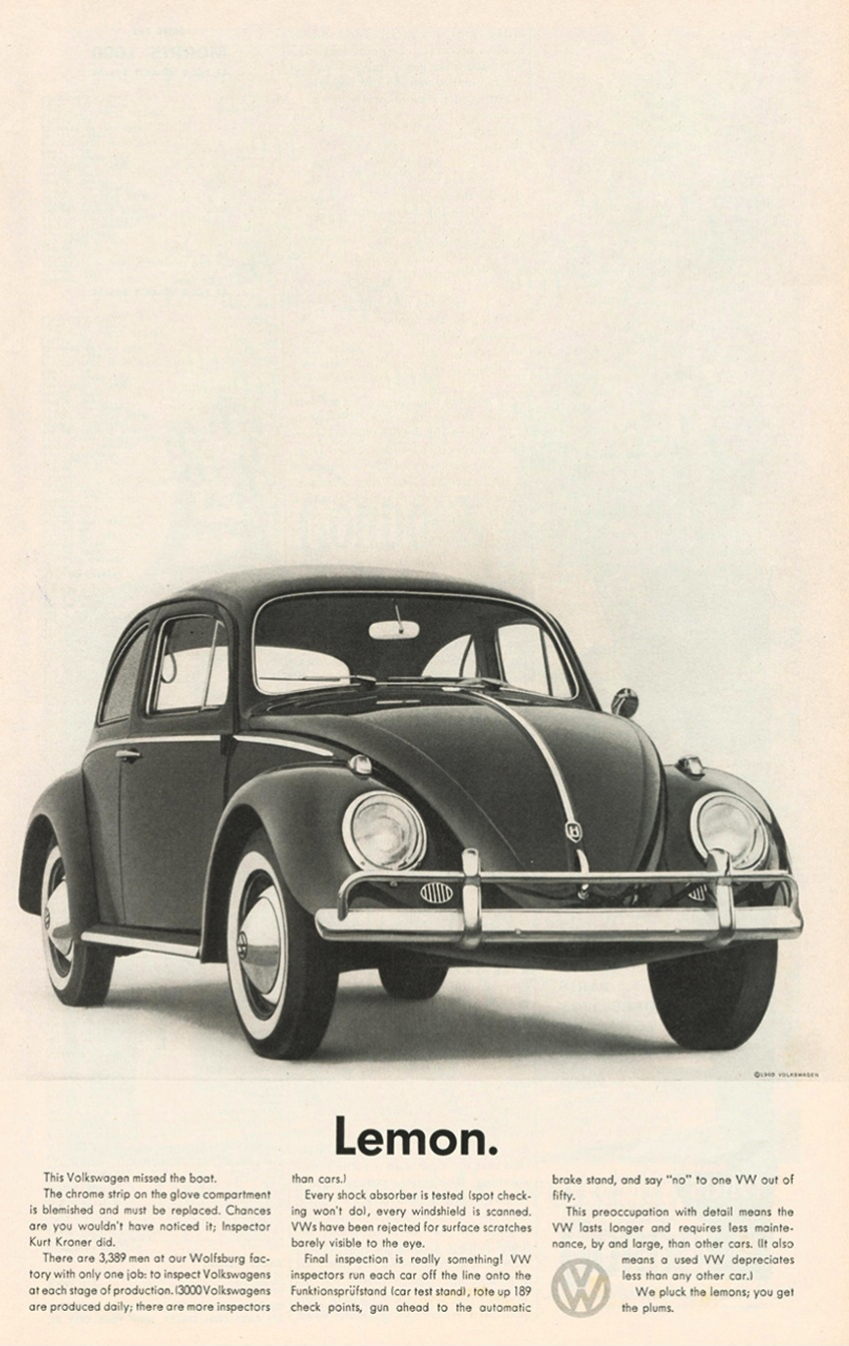April 19, 2007
We pluck the lemons; you get the plums: the Lemon Maligned, in Wikipedia as in the security literature
 Several people (thanks Twan, Lynn) have pointed to Bruce Schneier's recent article on Security as Lemons. I'll not comment about it directly, as frequent readers here know my counter-claim that security is not about lemons, and reference to Akerlof will lead you down the garden path. Instead, it points to Wikipedia's entry on Akerlof's "The Market for Lemons." This article kindly points to a nice theory about the entry of Lemons into the language, as hopelessly-flawed new cars, so bad they have to be replaced entirely.
Several people (thanks Twan, Lynn) have pointed to Bruce Schneier's recent article on Security as Lemons. I'll not comment about it directly, as frequent readers here know my counter-claim that security is not about lemons, and reference to Akerlof will lead you down the garden path. Instead, it points to Wikipedia's entry on Akerlof's "The Market for Lemons." This article kindly points to a nice theory about the entry of Lemons into the language, as hopelessly-flawed new cars, so bad they have to be replaced entirely.
(ed: original article seen at right, and the text is at bottom.) The advert is great, but if the wikipedia article is anything to go by (**), it is not the last word on the Lemon.
Reading Wikipedia is good for getting a taste, but teachers and professors in the academic world have long warned that as it is user-written, it is no substitute for doing the real research.
This wikipedia article is no exception, indeed to use its own terminology, it's a lemon (**). And, it's not the difference between new cars and used cars (a switch that Akerlof himself used, for what I applaud as obvious and fair literary licence). The article is poor on the very economics it is trying to describe, albeit, ones that are not trivial.
By way of showing how hard it is to get this economics right, here are some of the difficulties with Wikipedia's maligning of the Lemon:
"Examples include the market for used cars, the dearth of formal credit markets in developing countries and the unavailability of health insurance for the elderly (that is, in the absence of government programs such as Medicare)."
Although the first is Akerlof's market for lemons, the other two are not. Instead, they are better found in the space described by Stiglitz & Rothschild, and others.
The distinction is around who knows (more): Buyer or Seller? Large party or small?
Does the distinction matter? Not if trade is like a mirror, as all are fair by definition. But the point of the asymmetrical information literature was that not all is symmetrical; the mirror is broken, and the shards cut both sides.
Where it becomes clearer is that Akerlof proposed one solution set for the ignorant buyer, and Stiglitz & Rothschild proposed another solution set for the ignorant seller, and they are very different. You can get a taste, only, here on the Nobel Prize page. As an aside, these solutions are prevalent and confirmed in the market place, confirming the existence of two contrasting spaces. Which leads us to:
Ironically, there is no reciprocal danger of a market for a good product collapsing in this manner when the asymmetry is in favour of the buyer, that is to say, when the buyers can assess more accurately the quality of the products than the sellers.
Which is exactly what Stiglitz and Rothschild were looking at: the reverse, and they showed markets where we can find collapse: tax and insurance (e.g., health insurance for the elderly).
Another one is to compare to Gresham's law:
The result is that a market in which there is asymmetrical information with respect to quality shows characteristics similar to those described by Gresham's Law: the bad drives out the good.
The danger of the comparison is only eclipsed by the popularity of the mistake: the structural underlying forces are simply different. In Gresham's Law on currency, there was a mandated currency based on a variable quality product -- cows! These circumstances are not even remotely similar to the unmandated product of equal quality like VWs; the conclusion rhymes, but no more than a VW sounds like a cow.
Criteria for a lemon market1. Asymmetry of information
2. An incentive exists for the seller to pass off a low quality product as a higher quality oneno buyers can accurately assess the value of a product through examination before sale is made
all sellers can more accurately assess the value of a product prior to sale
3. Sellers have no credible disclosure technology (sellers with a great car have no way to credibly disclose this to buyers)
4. Deficiency of *effective* public quality assurances (by reputation or regulation)
5. Deficiency of *effective* guarantees / warranties
Skipping the too-hard biases in the above, look at the last parts, 3, 4 and 5. These are not the Lemons of Akerlof. Indeed,
Akerlof argues that many market institutions may be regarded as emerging from attempts to resolve problems due to asymmetric information. One such example is guarantees from car dealers; others include brands, chain stores, franchising and different types of contracts.
He argues that the arisal of institutions such as franchises, assurances and warranties will solve the lemons problem; Wikipedia suggests that their impossibility is the problem, not the solution. The article seems to have got it wrong with the examples as well. I agree the example on Indian milk delivery looks good, but the used computer market is less a match. What is a complete failure of a match is this:
Online dating clubs.... the limited description of an individual in an online dating advertisement is "...likely to be a careful selection of qualities and possibly false," [4] which leads to a situation of asymmetrical information; the person "selling" themselves as a potential dating partner knows far more about their qualities and defects than the recipient of the notification.
This is only true if we consider a date to be akin to slavery, i.e., the market where women buy men. It takes two to tango: dating generally involves a symmetrical exchange at practically all levels, the more so since equality reared her ugly head. Unless your date wears citric lipstick, he won't taste of lemon!

Which brings us to one final mistake, and this time it is not Wikipedia's fault, but the Nobel prize committee's and probably most of the economic world. Recall that these guys mentioned above won the Nobel Prize in Economics for their creation of an entire new sub-field:
For more than two decades, the theory of markets with asymmetric information has been a vital and lively field of economic research. Today, models with imperfect information are indispensable instruments in the researcher's toolbox. Countless applications extend from traditional agricultural markets in developing countries to modern financial markets in developed economies. The foundations for this theory were established in the 1970s by three researchers: George Akerlof, Michael Spence and Joseph Stiglitz. They receive the Bank of Sweden Prize in Economic Sciences in Memory of Alfred Nobel, 2001, "for their analyses of markets with asymmetric information".
So, where are the sour grapes? Above, I contrasted Akerlof as against Stiglitz & Rothschild, as they looked at the alternate sides of the asymmetry. That is, Akerlof looked the ignorant small buyer against the all-knowing big seller, and Stiglitz & Rothschild looked at how the ignorant seller operates against the all-knowing small buyer!
What a fascinating contrast! But, as any economist worth his salt knows, all economics reduces to a simple 2 x 2 chart. The market in asymmetric information is no exception:
| The Market for Goods, as described by Information and by Party | Buyer Knows | Buyer Lacks |
|---|---|---|
| Seller Knows | Efficient Goods | Lemons (used cars) |
| Seller Lacks | Limes (Tax, Insurance) | Silver Bullets (Security) |
Indeed, the market in asymmetric information isn't asymmetric! It's better described as insufficient or imperfect, and only half of it is asymmetric. There are "perfectly symmetric" markets, upper left, and there are "symmetrically flawed" markets of insufficient information, lower right.
This latter is the domain of Michael Spence, an unsung hero of economic thought. You and your date belong here, too, although whether his writings will help you to get along is an open question.
So the Nobel Prize committee got the penultimate word wrong, and this may be why people commonly make two mistakes in understanding this market:
#1 "it's all about Akerlov's market for lemons."#2 " 'signals' are what you need to solve the market for lemons."
Both Wrong: Firstly, there are three difficult spaces, Spence and S&R being equally well-ignored. Secondly, the solutions from each are mishmashed from one space to the other, and hence misapplied. C.f., signalling lemons doesn't help, as signals come from Spence, not Akerlof.
As I say, Wikipedia did not make these mistakes. Instead, the article on Spence says it well:
(Hmmmm..... I am forced to say..... having read that, I now realise I have been making a mistake in my understanding Spence, in that I ignored the cost argument..... more thought required!)
We continue to make these mistakes, starting with the Nobel Prize committee, through other august names, and ending with myself included. Which brings us to (my) closing comment, and the point: unless you read the original source material, you may well end up writing a lemon, or to similar taste, perpetuating someone else's lemon.
So let's really close with VW's original source material, kindly written in clear by University of Iowa's adclass, at the bottom of the advertisement above:
The Volkswagen missed the boat.The chrome strip on the glove compartment is blemished and must be replaced. Chances are you wouldn't have noticed it; Inspector Kurt Kroner did.
There are 3,389 men of our Wolfsburg factory with only one job; to inspect Volkswagens at each stage of production. (3,00 Volkswagens are produced daily; there are more inspectors than cars.)
Every shock absorber is tested (spot checking won't do), every windshield is scanned. VWs have been rejected for surface scratches barely visible to the eye.
Final inspection is really something! VW inspectors run each car off the line onto the Funktionsprüfstand (car test stand), tote up 189 check points, gun ahead to the automatic brake stand and say "no" to one VW out of fifty.
This preoccupation with detail means the VW lasts longer and requires less maintenance, by and large, than other cars. (It also means a used VW depreciates less than any other car.)
We pluck the lemons; you get the plums.
Ad copy: Volkswagen of America. (A) Doyle Dane Bernback, New York. (Ad) Helmut Krone. (P) Wingate Paine. circa 1960s.
(** Editor's note: The wikipedia article is now improved and may be a better rendition of the Akerlof paper. However, it only gives an idea, and an insufficient base for reliance. It behoves to read the original paper in depth before commenting.)
Posted by iang at April 19, 2007 06:43 PM | TrackBackWikipedia has more on signalling here: http://en.wikipedia.org/wiki/Signaling_(economics) It seems a much more reliable article.
Posted by: SignalMonger at April 25, 2007 07:48 AM